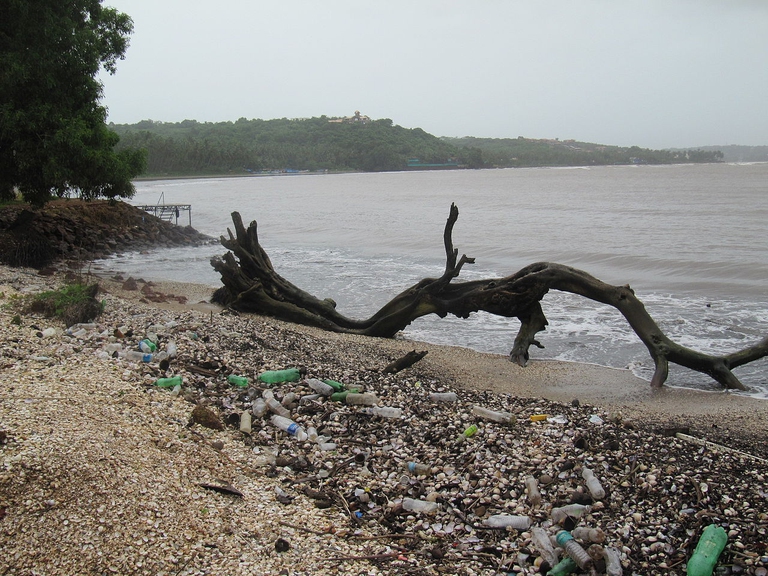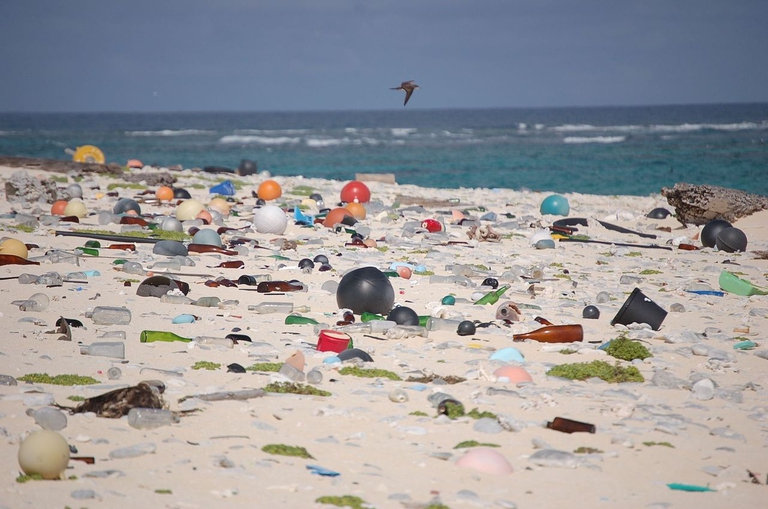
South African court dismisses a major lawsuit by 140,000 Zambian women and children against Anglo American for Kabwe lead poisoning. A setback for affected communities enduring the lasting impact of lead contamination.
The latest study by the Ellen MacArthur Foundation reveals that there will be more plastic than fish in the sea by 2050.
Imagine oceans populated by fish swimming among plastic pieces of any origin and dimension. Imagine oceans where you’re more likely to find a plastic bottle rather than an anchovy. A horror movie? No, the ugly truth that, unfortunately, the world is going to face by 2050.
That’s what is shown in a report carried out by the Ellen McArthur Foundation, in collaboration with McKinsey Centre for Business and Environment, and presented at the 2016 World Economic Forum at Davos. According to the analysis, the ratio of plastic to fish in the oceans – currently is one to five – will be one to three by 2025. By 2050, fish amount in oceans will be thus fewer than plastic debris.
This will represent an environment catastrophe: fish will ingest plastic debris, with deadly consequences for the food chain. Currently, according to a study published by Proceedings of the National Academy of Sciences, up to 90% of seabirds in the world have plastic in their guts.
According to the report presented at Davos, the only way to avoid making oceans uninhabitable is “triggering a revolution in the plastics industrial ecosystem”, and looking for alternatives to oil as raw material. If this trend continues, plastic material producers will consume 20% of global oil production by 2050.
Switching to sustainable alternatives and enhancing reutilisation could allow huge savings in financial terms: “The current plastics economy has drawbacks that are becoming more apparent by the day. After a short first-use cycle, 95% of plastic packaging material value, or $80–120 billion annually, is lost to the economy”.
However, change can be driven also by our daily behaviours. A simple act, like going shopping with a reusable bag can significantly help face the problem. It’s no coincidence that many countries are working to limit the use of shopping bags.
An example is France, which will ban the distribution of plastic bags in all supermarkets as of March, as well it will ban the sale of plastic cutlery starting from 2020. Why don’t other European countries follow close behind?
Siamo anche su WhatsApp. Segui il canale ufficiale LifeGate per restare aggiornata, aggiornato sulle ultime notizie e sulle nostre attività.
![]()
Quest'opera è distribuita con Licenza Creative Commons Attribuzione - Non commerciale - Non opere derivate 4.0 Internazionale.
South African court dismisses a major lawsuit by 140,000 Zambian women and children against Anglo American for Kabwe lead poisoning. A setback for affected communities enduring the lasting impact of lead contamination.
US-based craft beer company Saltwater Brewery, in collaboration with advertising agency We Believers, has launched a beer packaging that is 100 per cent edible. The problem of ocean plastic The idea stems from the need to protect oceans and marine wildlife from the huge amount of plastic humans dump on the world’s beaches and seas every year. Plastic represents
According to a new study, 90% of all seabirds have plastic residuals in their guts.
Controversial African land deals by Blue Carbon face skepticism regarding their environmental impact and doubts about the company’s track record, raising concerns about potential divergence from authentic environmental initiatives.
Majuli, the world’s largest river island in Assam State of India is quickly disappearing into the Brahmaputra river due to soil erosion.
Food imported into the EU aren’t subject to the same production standards as European food. The introduction of mirror clauses would ensure reciprocity while also encouraging the agroecological transition.
Sikkim is a hilly State in north-east India. Surrounded by villages that attracts outsiders thanks to its soothing calmness and natural beauty.
Sikkim, one of the smallest states in India has made it mandatory for new mothers to plant saplings and protect them like their children to save environment
Chilekwa Mumba is a Zambian is an environmental activist and community organizer. He is known for having organized a successful lawsuit against UK-based mining companies.









